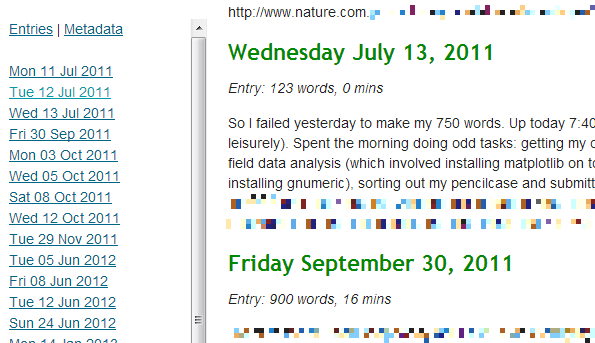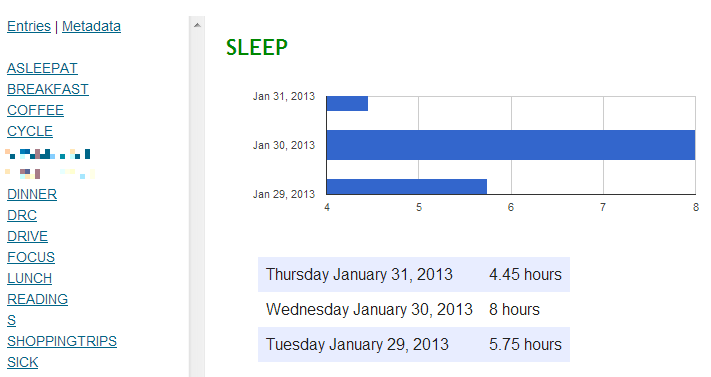An assortment of Python code to look at what you've written on 750words.com.
The 750 Words export files can be grabbed automatically if you have the Python packages requests, lxml, and pyquery installed, using this script:
$ python download_750words.py --help
Text analysis code is in m750.py.
>>> from m750 import *
>>> text, entries = read_local_750words() # or text, entries = download_750words()Statistics are calculated from the entries list via three classes::
>>> s750 = stats_750(entries) # Streaks, etc.
>>> all = stats(text) # Text statistics on all your writing
>>> estats = entrystats(entries) # Text statistics per entryUse print to explore the results of these classes, and take a look at their
docstrings and methods. The graphing methods require matplotlib.
An example of a word cloud plotted using pytagcloud
You can also see some example IPython Notebooks:
- Analyse 750 Words content.ipynb
- word clouds via pytagcloud.ipynb
- convert to daily markdown files.ipynb
- how to do stop words list.ipynb
- Moby
The stats on the 750words.com website are -- and will probably continue to be -- far better. I made this framework mainly so I could look at how whatever measures I can find change over time, something the 750words.com site doesn't quite do at the moment (Feb 2013).
I've included hyphenation and parts-of-speech dictionaries from the
Moby Project
and some functions to load these in moby.py. The stats classes will use this
data if you use use_moby=True. They're not included in the repository but
you can download this 26 MB file
and unzip it into a "Moby" folder here.
There is also a script which shows your entries and metadata on a single page through a local HTTP server. Just run:
$ python view750.py
Your entries
Your metadata



